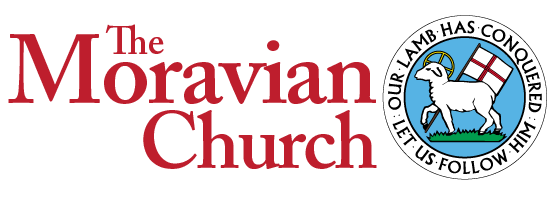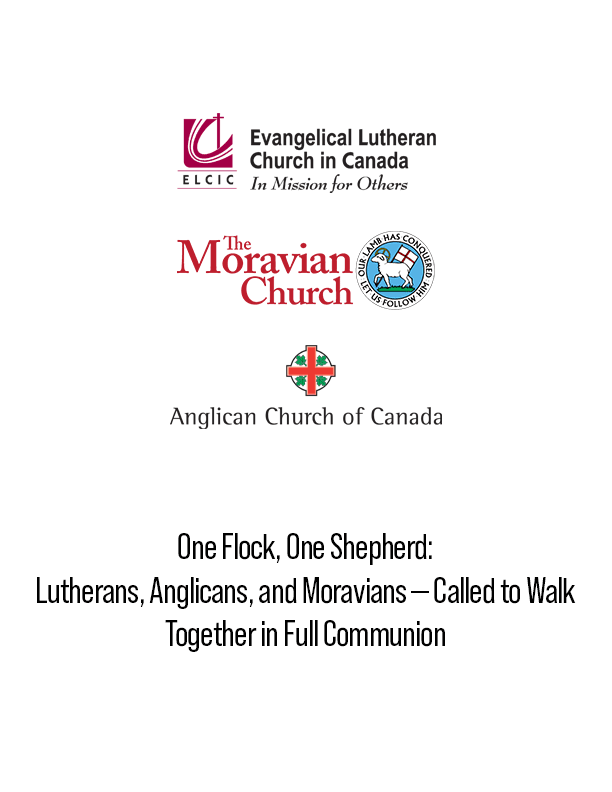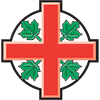One Flock, One Shepherd
Lutherans, Anglicans, and Moravians — Called to Walk Together in Full Communion
Our Moravian, Lutheran, and Anglican traditions are each historic communities of faith in Jesus Christ, which have roots in the ancient common tradition of the apostolic Church. We were also each shaped in many ways by the reforming impulses of 15th and 16th century Europe. At various times in our early histories, we found important points of contact and collaboration.
Today, we find ourselves as neighbours in various parts of our respective global communions. In Canada, the Moravian Church in North America, the Evangelical Lutheran Church in Canada, and the Anglican Church of Canada have a number of congregations that live and minister alongside one another. Local ministry collaborations have developed to varying extents and degrees, and increasingly so in recent years. These emerging grassroots connections, along with a growing sense of the need for churches to walk faithfully together as disciples into an uncertain future, call us to seek full communion and deeper ministry partnerships together according to the prayer of our common Saviour.
(Most of the text above has been excerpted, with minor edits, from One Flock, One Shepherd, the Lutheran-Anglican-Moravian Declaration.)
Our identities and traditions



The Lutheran-Anglican-Moravian working group has assembled a resource, “Lutherans, Anglicans, and Moravians – A Family Reunion,” providing additional context and history for each of our three churches.
Learning more about one another

Worship looks similar and different from one congregation to the next—both within denominations and also across our Lutheran, Anglican and Moravian traditions. Learn some of the main features of worship in each denomination.

“United, not uniform.” This video explains how full communion can guide us to recognize and respect one another’s faith traditions, and support each other, even when we disagree.

In John 17:20, Jesus prayed for us so that we could be one. Exposure to a diverse yet related set of traditions presents opportunities to learn and draw from the gifts each denomination offers, and strengthens our ministry in Christ’s church.
One Flock, One Shepherd
Lutheran-Anglican-Moravian Declaration
This agreement, One Flock, One Shepherd: Lutherans, Anglicans, and Moravians— Called to Walk Together in Full Communion, outlines the full communion declaration, which was inaugurated in 2023.
Lutheran-Anglican-Moravian working group members
Evangelical Lutheran Church in Canada
Paul Gehrs
Ilze Kuplens-Ewart
(until March 2022)
James Hendricksen
(until June 2022)
Faith Nostbakken
Anglican Church of Canada
Scott Sharman
Dane Neufeld
Danielle Key
Philip Hobson
Mark MacDonald
(until April 2022)
The Moravian Church
James Lavoy
Matt Gillard
Blair Couch
Rowan Simmons
For more information or additional details about the working group, contact:
Rev. Paul Gehrs, Evangelical Lutheran Church in Canada
Rev. Canon Dr. Scott Sharman, Anglican Church of Canada
Rev. James Lavoy, Moravian Church in Canada





